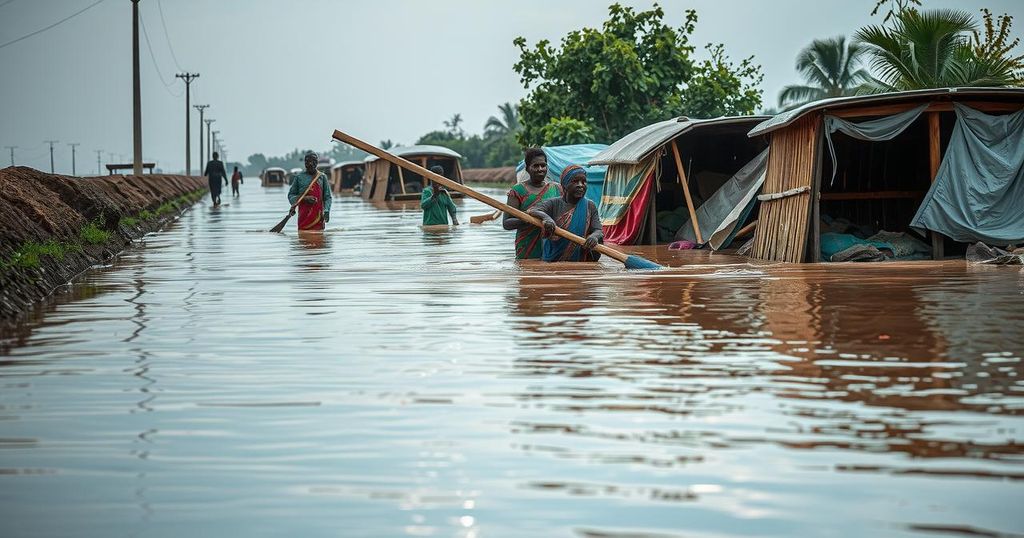Escalating Flooding Crisis in South Sudan: Survival on the Jonglei Canal
Flooding in South Sudan has become a recurring disaster, with tens of thousands of individuals living precariously on the edges of the Jonglei Canal. This situation results from seasonal inundations that are worsening due to expanding wetlands, flooding villages, and endangering livestock and health access. The local residents face numerous challenges in navigating these perilous waters for basic necessities, prompting concerns about their long-term survival amid ongoing climatic changes.
In South Sudan, flooding has escalated into a recurrent calamity, displacing tens of thousands of individuals who now barely manage to survive on the limited high ground alongside the Jonglei Canal. Historically, seasonal flooding has been an integral aspect of life for pastoral communities surrounding the Sudd, the continent’s largest wetland. However, the extent of the swamp continues to expand, inundating villages, devastating farmland, and leading to the loss of livestock. Local residents recount the arduous expeditions through treacherous waters, fraught with the threat of venomous snakes, to reach medical facilities.
The environmental challenges faced by these communities extend beyond mere inconvenience; they pose significant risks to health and livelihood, as the persistent floods threaten essential resources, including agricultural land and access to healthcare. The situation reflects a growing humanitarian crisis exacerbated by climate change, requiring both immediate relief and long-term solutions to ensure the safety and sustainability of vulnerable populations.
The phenomenon of flooding in South Sudan is deeply rooted in the geographical and climatic context of the region. The Sudd wetland, while pivotal for the local ecosystems and pastoral lifestyles, has also become increasingly vulnerable to flooding due to changing rainfall patterns and other environmental factors. This progression has led to significant socio-economic challenges, as communities struggle with the perennial cycle of displacement and resource scarcity, prompting urgent calls for humanitarian assistance and intervention.
The increasing frequency and severity of flooding in South Sudan underline an urgent humanitarian crisis requiring immediate attention. The resilience of the affected communities is commendable, but without substantial support and intervention, their survival remains tenuous. Addressing both the acute impacts of flooding and the broader environmental issues will be crucial for the future stability and prosperity of the region.
Original Source: lufkindailynews.com




Post Comment